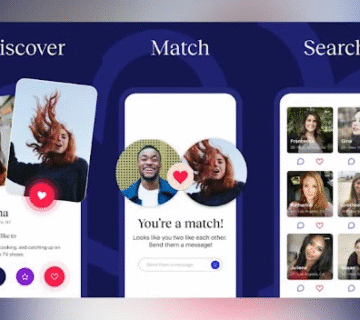Online dating is now more common—and more complex—than ever. While Hinge.co remains one of the most reputable and relationship-focused apps in the industry, many users wonder, “Are there fake profiles on Hinge.co?” The short answer: yes, like all online platforms, Hinge is not immune. However, Hinge employs a variety of robust systems and community-driven tools to identify and remove scams and bots. In this detailed.
Why Do Fake Profiles Exist on Hinge?
Fake profiles plague virtually every dating app. Scammers, spammers, and people with less-than-honest intentions create fake Hinge profiles for several common reasons:
-
Romance or financial scams: Seeking to manipulate users into sending money or sharing personal details.
-
Identity theft: Impersonating others to steal information.
-
“Catfishing”: Pretending to be someone else for emotional manipulation or entertainment.
-
Malware/phishing: Trying to lure people to click malicious links or install unsafe software.
How Many Fake Profiles Are There on Hinge?
There’s no public number, but Hinge.com has one of the better reputations for removing fakes compared to older or less-moderated apps. As dating app usage soars into the millions, a small percentage slip through the cracks—often with rapidly created or suspiciously generic profiles.
But here’s the good news: Hinge invests heavily in scam and fraud prevention, from selfie verification tools to sophisticated algorithms and a large team of moderators who act on reports and suspicious activity quickly.
Top Signs of a Fake Profile on Hinge.co
To keep yourself and your data safe, watch for these key red flags:
-
Too-Perfect or Stock Photos
-
Professional-quality, model-like photos with no casual shots usually mean stolen images. Use a reverse image search to check if their photos appear elsewhere online.
-
-
Limited or Generic Profile Info
-
If their prompt answers or bio are vague (“Just ask!”), repetitive, or feel copied/pasted, be wary. Real users share unique hobbies, stories, or tidbits.
-
-
Rushed Escalation or Quick Moves Off the App
-
Fakes almost always want to move to WhatsApp, Telegram, or email ASAP, dodging Hinge’s built-in security monitoring.
-
-
Too Fast, Too Intense
-
Scammers often use “love bombing” (fast declarations of affection, intense compliments) or feign emergency to build quick trust.
-
-
Strange Language or Scripted Messages
-
Bots and scammers tend to reply instantly, often with awkward grammar or non sequiturs, sometimes even referencing incorrect details from your profile.
-
-
Inconsistent or Contradictory Details
-
If their location, job, or life story shifts from conversation to conversation, it’s a massive red flag.
-
-
Requests for Money, Private Info, or Gift Cards
-
Never send money or share personal data with someone you just met on Hinge. Any such request is almost always a scam.
-
-
New or “Just Joined” Badges
-
While some newbies are real, fraudsters often operate using accounts freshly created (sometimes dozens in a row).
-
Does Hinge Protect Against Scams and Bots?
Yes—Hinge was an early adopter of:
-
Selfie verification: Users prove their likeness matches their photos.
-
Automated scan tools: Algorithms score accounts for odd activity or too many rapid likes.
-
Data encryption: Protects users’ data from theft.
-
Manual moderation: Every user report is reviewed by a human team member.
-
One-tap reporting: Users can flag a suspicious profile directly from the profile or chat window for fast investigation.
What Should You Do If You Encounter a Fake Profile?
-
Report it: Use the three-dot menu on their profile or chat window and choose “Report.” Select the reason (fake account, scam, inappropriate behavior, etc.), and Hinge’s team handles the rest. The reported user won’t be able to contact you again.
-
Block and move on: Don’t continue conversations or give second chances to strange, inconsistent, or suspicious users.
-
Avoid sharing private information: Even if you “click,” never give out your address, financial info, or passwords.
-
Reverse image search: If you’re unsure, copy and paste their photo into a reverse image tool to check if it appears elsewhere (stock sites, social media, etc.).
What If You’ve Shared Personal or Financial Information?
-
Stop all contact and report the account.
-
Change your passwords on any connected apps.
-
Contact your bank if you sent money or shared financial details.
-
Monitor your accounts for unusual activity or credit changes.
Does Hinge Have More Fakes Than Other Dating Apps?
No reputable study shows Hinge is “full” of fake profiles—platforms like Tinder and some lesser-known sites are often worse. Hinge.co verification and reporting systems, plus its relationship-oriented community, attract more genuine users overall. However, every platform is an evolving threat environment—scammers go where the users are, and users must remain vigilant.
Why Is Vigilance Still Required in 2025?
As AI tools improve, scammers may generate more realistic conversations and fake profiles that are increasingly hard to spot. However, the basics—quick moves off-platform, rushed intimacy, perfect photos, and requests for help—remain red flags.
You’re always safest when you:
-
Keep communication on the app until comfortable.
-
Trust your instincts—if it feels off, it probably is.
-
Regularly update your passwords and stay alert for breaches.
Read More: What Is the Male to Female Ratio on Hinge.co? The 2025 Gender Balance Guide
Conclusion
Hinge.co is one of the safest dating platforms in 2025, but no service is scam-proof. Stay alert, trust your intuition, and make use of Hinge’s built-in tools to enjoy a safe, genuine search for a real connection. The more you know about how fake profiles operate, the more you’ll focus your energy on people who are truly there for the right reasons.








[…] Read More: Are There Fake Profiles on Hinge.co? The Ultimate 2025 Guide to Spotting and Avoiding Scams […]